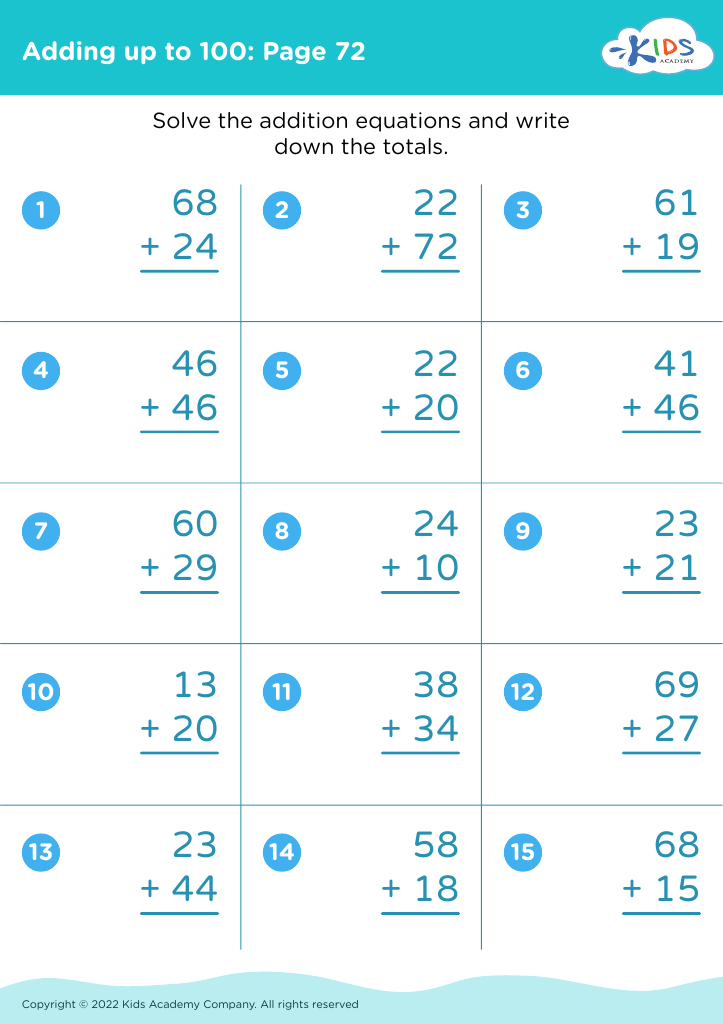Enhance fine motor skills Adding up to 100 Worksheets for Ages 3-7
3 filtered results
-
From - To
Boost your child's fine motor skills with our engaging "Adding up to 100" worksheets, designed specifically for children ages 3-7. Our educational materials not only improve counting and addition proficiency but also refine hand-eye coordination and dexterity. Through interactive exercises, tracing numbers, and coloring activities, young learners develop the fine motor strength necessary for writing and everyday tasks. These printable worksheets provide a fun and effective way to foster early math skills and enhance your child's confidence in their abilities. Start today and watch your child thrive both academically and developmentally!
Enhancing fine motor skills in children ages 3-7 is crucial for their overall development and sets the foundation for more complex tasks they'll encounter in later years. These skills involve small muscle movements, particularly in the hands, which are essential for activities like writing, buttoning clothes, and even tying shoelaces. When children effectively develop fine motor skills, they gain confidence and independence in performing everyday tasks, fostering a sense of accomplishment and self-esteem.
In addition, introducing concepts such as adding up to 100 during this formative stage is vital for cognitive growth and mathematical proficiency. Basic arithmetic skills form the basis of numeracy, which is critical for academic success and real-world problem-solving. Engaging young minds in simple addition exercises helps them understand number relationships, develop logical thinking patterns, and build a strong mathematical foundation that will benefit them throughout their education.
By paying attention to both fine motor skills and early arithmetic, parents and teachers provide a holistic approach to a child's education. They ensure that learners are not only adept with physical coordination but also equipped with essential cognitive abilities. This dual focus fosters balanced development, preparing children for future academic challenges and everyday tasks.






%20(1).jpg)










